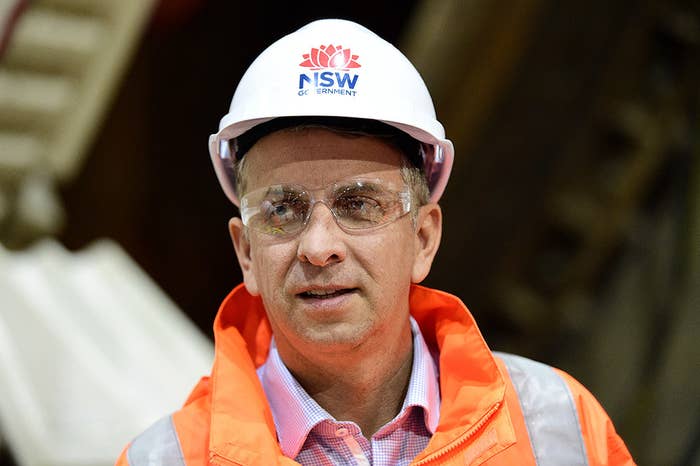
Commuters using public transport will soon be paying for their journeys using facial recognition technology instead of transport cards, an Australian minister has predicted.
"I am confident we will... see frictionless transport payments in the not too distant future," said New South Wales minister for transport and roads Andrew Constance in a speech at the Sydney Institute on Tuesday evening.
"In the transport space we'll use facial recognition technology to scan customers who've 'opted in' and linked their Opal account. No more gate barriers — just a smooth journey."
Currently the state's commuters can either tap on and off with an Opal card, pay using credit or debit cards that allow contactless payments or a smart phone.
Constance likened the plan to Amazon's "Just Walk Out" technology, saying he wanted people to "not think" about their travel.
The speech — titled "Mobility, Driving Innovation and Enhancing our Liveability — Transport as a True Tech Business" — comes as governments, policymakers and advocates in the US are urging caution in facial recognition use.
In May, San Francisco banned the use of facial recognition software by police and government agencies. Somerville, just north of Boston, followed suit in June, banning the technology's use in police investigations. Oakland, California is also considering a ban. Tech company Microsoft has called for the technology to be properly regulated.
Australian Privacy Foundation chair David Vaile told BuzzFeed News facial recognition was "extremely dangerous for privacy and for personal information security" and said it should not be used without strict regulations: "Facial recognition is the critical technology in the middle of the mass surveillance model — it basically means that governments can track where everybody goes and they know every trip that you're on," he said.
Vaile warned of the risk of governments connecting individuals' transport data with other data from facial recognition tools. He said there was a risk that de-identified data could be re-identified, and that Australians have few privacy rights in case of breaches.

Constance said that Transport for NSW was already working with the private sector to enhance Opal card data to better understand the commuter "first and last mile — where people come from before they tap on or where they go after they tap off." The state is also using Amazon machine learning technology to predict what the transport day is going to look like.
Later in his speech, Constance predicted that technology would one day be able to determine the health and wellbeing of people in vehicles on the state's roads.
"Advanced data analytics, facial recognition and sensor technology will help to determine if customers are satisfied, angry, anxious. Perhaps even if they are unwell and in urgent need of medical attention. The possibilities are endless," he said.
"Digital identity verification will eventually be integrated with biometric recognition," Constance added. "This will read someone’s face, retina, breath, gait or voice to enable next level authorisation and access. Think truly contactless payments — entry to buildings, onto planes, at banks and hotels."
Vaile said biometrics were particularly dangerous because they are impossible to change. "If your driver's licence is stolen or your credit card is compromised you can change that," he said. With biometrics, "if something goes wrong you're stuck with that risk for the rest of your life".
A federal parliamentary inquiry into legislation governing identity-matching using facial recognition and other biometric technology was started last year, but lapsed when parliament broke for the election.
